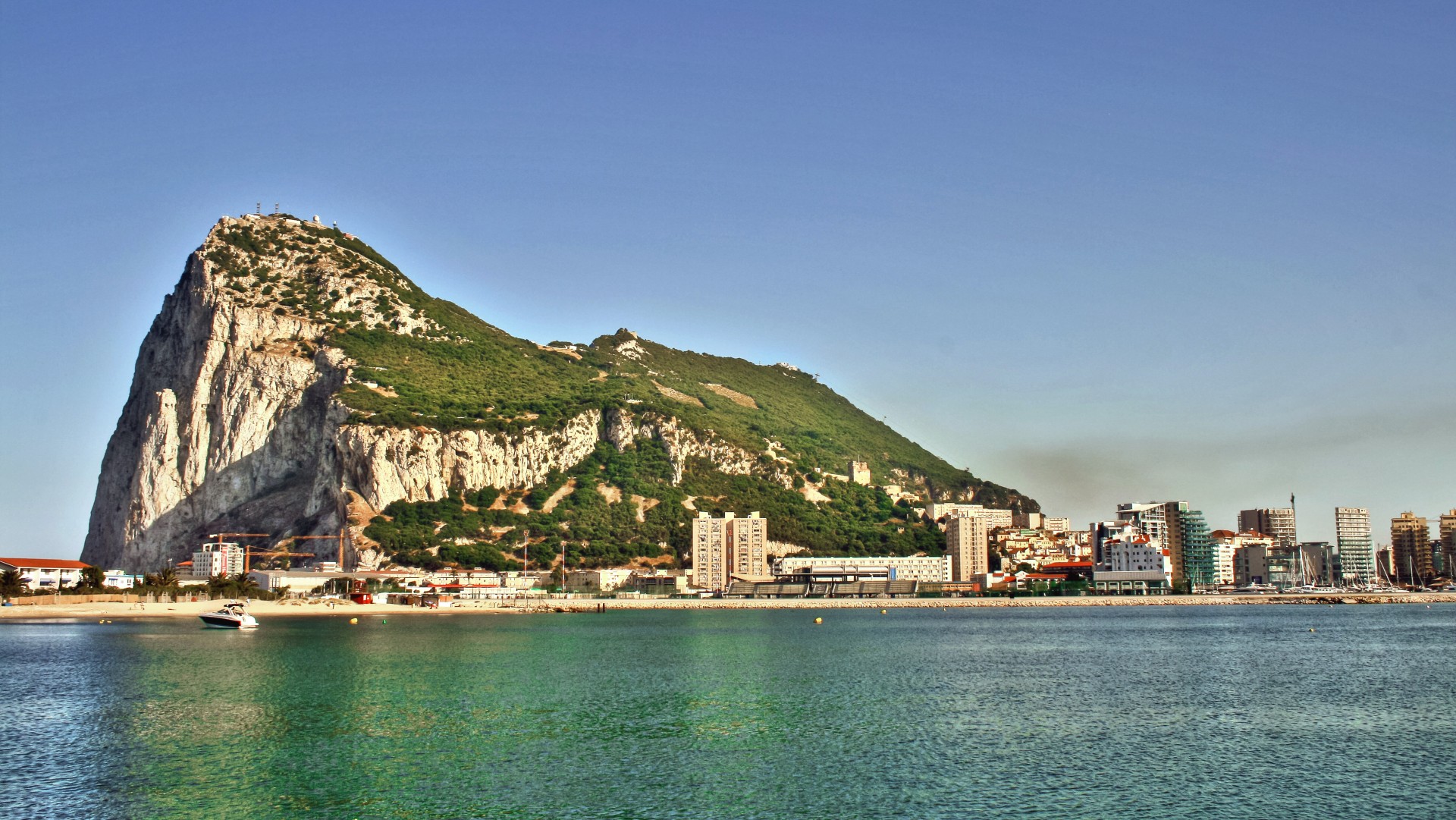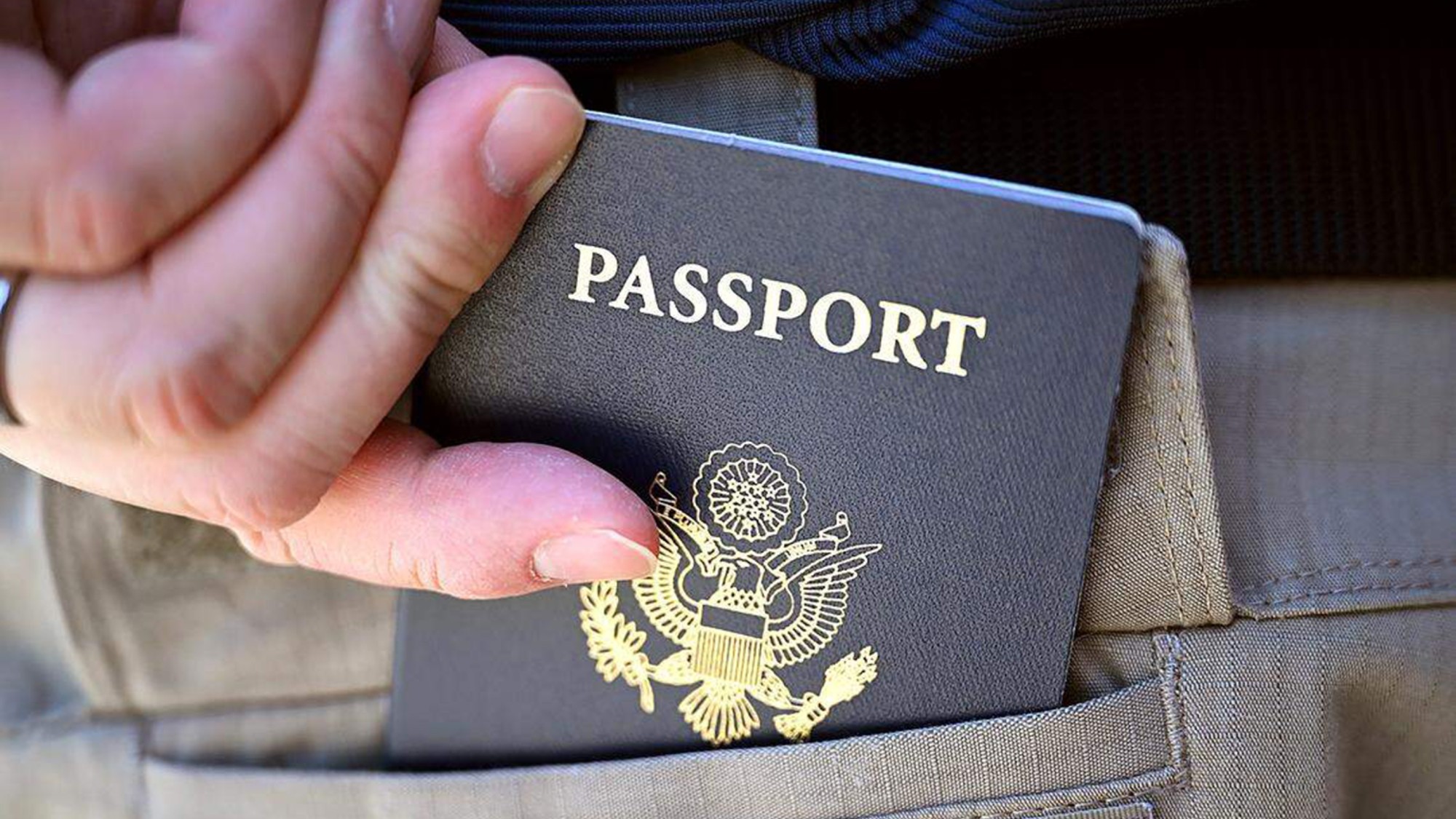Gibraltar: the last frontier of Brexit
EU border guards at the Rock's airport would 'erode British sovereignty to the point of meaninglessness', claims Eurosceptic MP

A free daily email with the biggest news stories of the day – and the best features from TheWeek.com
You are now subscribed
Your newsletter sign-up was successful
An agreement between Britain and the European Union over the future of Gibraltar is reportedly "getting closer".
Despite "significant progress" made on issues related to the economy, trade and the environment, the nature of the relationship between the Mediterranean territory and the EU "remains unresolved after Brexit", said The Independent. Rules governing Gibraltar's border with Spain are understood to have been the "major sticking point".
Eurosceptic Conservative MPs have said that proposals for EU border guards to be posted at Gibraltar's airport represent a threat to British sovereignty and set a precedent for other British overseas territories.
The Week
Escape your echo chamber. Get the facts behind the news, plus analysis from multiple perspectives.

Sign up for The Week's Free Newsletters
From our morning news briefing to a weekly Good News Newsletter, get the best of The Week delivered directly to your inbox.
From our morning news briefing to a weekly Good News Newsletter, get the best of The Week delivered directly to your inbox.
What is the status of Gibraltar since Brexit?
Since the UK opted to leave the EU in 2016, Gibraltar – which voted 96% to remain – has been "in a state of nervous limbo", said The New European.
Eight years on from the referendum, the 35,000 or so inhabitants of "the Rock", the majority of whom identify as British and who vehemently rejected a joint sovereignty plan with Spain in 2002, "still have no idea what their future relationship with the EU will be", said the newspaper.
The territory was not included in the UK-EU post-Brexit trade deal and had been left outside the EU's customs union by the leave vote. A temporary "pre-deal" arrangement was introduced in 2020, which effectively allowed freedom of movement at the Spain-Gibraltar border to avoid disruption, while letting Gibraltar remain a British territory.
This is vital for Gibraltar's economy, said the Financial Times. The Rock is "as wealthy as it is cramped": a "freakishly overdeveloped tiny place not even 3 square miles in size" that relies on more than 15,000 cross-border commuters from Spain to "double the size of its workforce every day". Without the workers, the economy "would grind to a halt".
A free daily email with the biggest news stories of the day – and the best features from TheWeek.com
No agreement would mean a hard border between Gibraltar and Spain, which could subject commuters to long delays along a frontier just over a mile long. It would also wreak havoc on trade, as Gibraltar imports almost all of its goods.
Why has progress been so slow?
In principle, Spain and Gibraltar agree on a need for smooth cross-border relations, said the FT. But "bigger matters are at play".
Spain refuses to recognise British sovereignty over the territory, which was originally ceded to the UK "in perpetuity" in the Treaty of Utrecht of 1713. Spain's official position, both on the left and right, has always been that the British overseas territory belongs to Spain. Successive conservative governments have attempted to take at least partial control of the Rock, and the Spanish right has long used Gibraltar as a "whack-a-mole for energizing a nationalist audience", said US socialist magazine Jacobin.
What is the border plan?
Talks have been ongoing for nearly two years to establish a common travel area between Gibraltar and the EU's Schengen zone, effectively making it a de facto Schengen member, which would remove the need for most controls at the border.
However, some Conservative MPs have talked of a "sellout" by the UK government, with Bill Cash, chair of the Commons' European Scrutiny Committee, recently warning that allowing checks by EU border guards at the airport would "erode British sovereignty to the point of meaninglessness".
EU immigration checks at the airport would be "utterly unacceptable", said The Telegraph in an editorial, "partly because the airport is a joint civil-military facility that doubles as a RAF station", making this "not just a matter of sovereignty, but also of control of a strategically significant British defence asset".
The fear, said The Independent, is that this "will see EU Frontex border guards decide who can enter the British overseas territory – and will give them the power to turn away British citizens".
There are also "wider concerns" about this treaty with the EU, said the news site. These include "implications of a dilution of British sovereignty in areas such as Northern Ireland and even potentially the UK bases in Cyprus, where pressure is mounting over land that is British sovereign territory".
Harriet Marsden is a senior staff writer and podcast panellist for The Week, covering world news and writing the weekly Global Digest newsletter. Before joining the site in 2023, she was a freelance journalist for seven years, working for The Guardian, The Times and The Independent among others, and regularly appearing on radio shows. In 2021, she was awarded the “journalist-at-large” fellowship by the Local Trust charity, and spent a year travelling independently to some of England’s most deprived areas to write about community activism. She has a master’s in international journalism from City University, and has also worked in Bolivia, Colombia and Spain.
-
 Political cartoons for February 16
Political cartoons for February 16Cartoons Monday’s political cartoons include President's Day, a valentine from the Epstein files, and more
-
 Regent Hong Kong: a tranquil haven with a prime waterfront spot
Regent Hong Kong: a tranquil haven with a prime waterfront spotThe Week Recommends The trendy hotel recently underwent an extensive two-year revamp
-
 The problem with diagnosing profound autism
The problem with diagnosing profound autismThe Explainer Experts are reconsidering the idea of autism as a spectrum, which could impact diagnoses and policy making for the condition
-
 ‘The West needs people’
‘The West needs people’Instant Opinion Opinion, comment and editorials of the day
-
 How ‘Manchesterism’ could change the UK
How ‘Manchesterism’ could change the UKThe Explainer The idea involves shifting a centralized government to more local powers
-
 ‘Dark woke’: what it means and how it might help Democrats
‘Dark woke’: what it means and how it might help DemocratsThe Explainer Some Democrats are embracing crasser rhetoric, respectability be damned
-
 San Francisco tackles affordability problems with free child care
San Francisco tackles affordability problems with free child careThe Explainer The free child care will be offered to thousands of families in the city
-
 EU-Mercosur mega trade deal: 25 years in the making
EU-Mercosur mega trade deal: 25 years in the makingThe Explainer Despite opposition from France and Ireland among others, the ‘significant’ agreement with the South American bloc is set to finally go ahead
-
 The Mint’s 250th anniversary coins face a whitewashing controversy
The Mint’s 250th anniversary coins face a whitewashing controversyThe Explainer The designs omitted several notable moments for civil rights and women’s rights
-
 Biggest political break-ups and make-ups of 2025
Biggest political break-ups and make-ups of 2025The Explainer From Trump and Musk to the UK and the EU, Christmas wouldn’t be Christmas without a round-up of the year’s relationship drama
-
 US citizens are carrying passports amid ICE fears
US citizens are carrying passports amid ICE fearsThe Explainer ‘You do what you have to do to avoid problems,’ one person told The Guardian